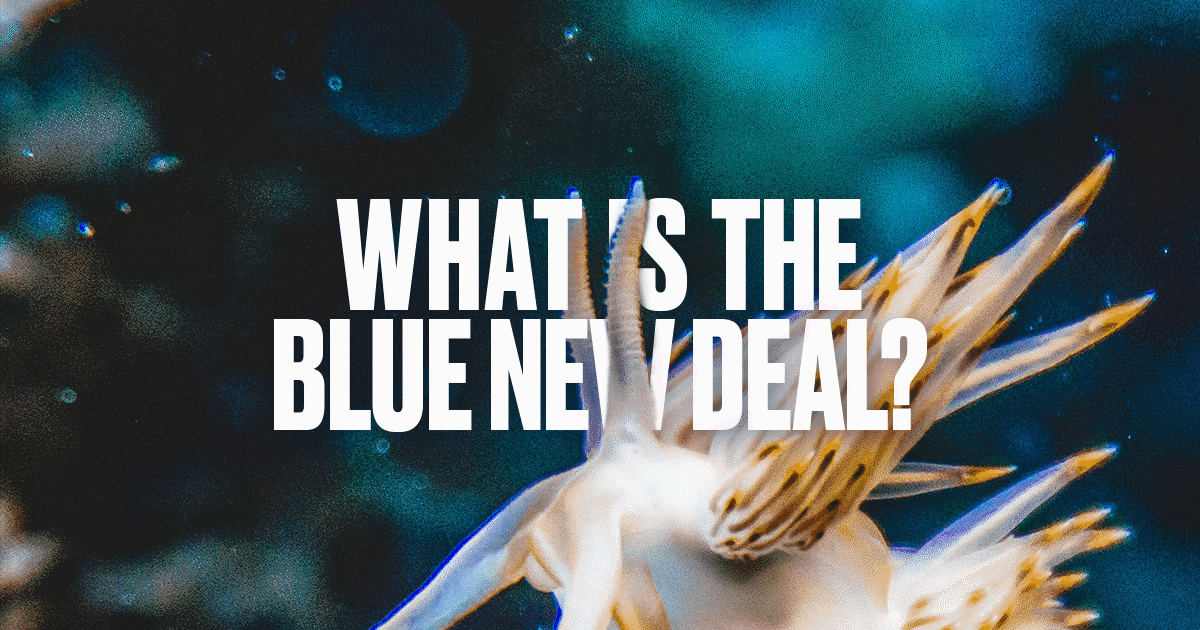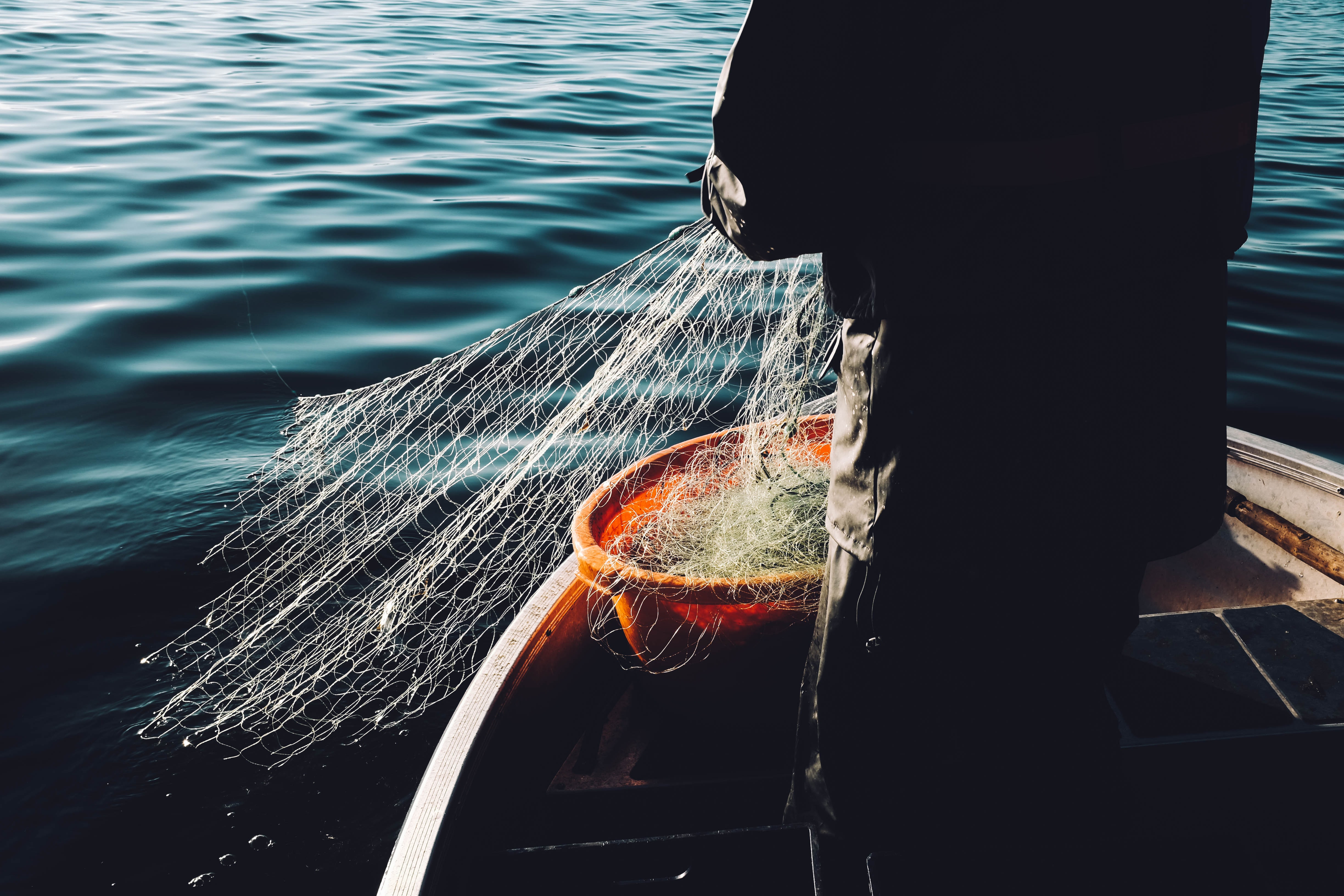Why Youth Will Shape Our Ocean's Future

SOA Blog
Sustainable Ocean Alliance is accelerating ocean solutions around the world. Here are their stories.
The Sustainable Ocean Alliance's Youth Policy Advisory Council has just announced their Global Blue New Deal: a synthesis of crowd-sourced, youth-led priorities from around the world related to how to end the cycle of ocean decline. Download the draft Blue New Deal here, and read on to learn about the framework and the process behind this historic collaboration from YPAC's chair, Mark Haver.
The Sunday before I started my first year of college, I visited my hometown’s downtown neighborhood, Ellicott City, Maryland (45 minutes north of the U.S. capital, Washington, DC) with my mom. Right as it started to rain, my mom and I left and returned home.Within two hours, family and friends across the country began to call us—to make sure we were still alive.
They told us to turn on the television. There, right before our eyes, we watched cars float down Ellicott City's Main Street—some still had people inside. We watched people panicking, afraid that their buildings wouldn’t be high enough to protect them from the rising water line.
In a matter of hours, flash floods had taken lives and washed away stores that had been there for decades, as if they never existed. Where we had been a mere two hours before was suddenly submerged in ten feet of floodwater. People said that a flood like that only came once every thousand years.
I will never forget how much hope my community had as they rallied together to restore our downtown. But two years later, after millions of dollars invested in our town’s restoration and all of our small business owners’ hard work to reopen, another ”once in a thousand years” flood ransacked the city. This time, it smothered any hope of getting things back to the way they were before.
My generation is no stranger to stories like these: where seasonal rains become floods, where a dry spell becomes a drought, or where an occasional hurricane becomes an annual evacuation. Our climate is changing, bringing with it destructive weather patterns and impending natural disasters.
But there's still hope for transformation—if I, or our global community of youth, have anything to say about it.
Building the Youth Climate Movement
In the face of an ecological emergency, my experience and those of my peers and friends around the world have motivated me to speak up for our rights to enjoy the same opportunities that previous generations have experienced. I will not stand to see communities like mine wash away for lack of political will to save the planet we’re actively destroying.
And it's not just me: in 2019, youth around the world began to rise up and declare that we have had enough of the cyclical exploitation of the environment that jeopardizes our future. Events like the Global Climate Strikes and Fridays for Future protests showcased predominantly youth voices calling for policymakers to step up to address a dying Earth that could no longer be ignored.
 This activism spurred revolutionary policy frameworks, like the Green New Deal championed by U.S. Congresswoman Alexandria Ocasio-Cortez. Policy like this has completely reshaped the global climate conversation to include the intersectional demands of young people in building a more equitable future.
This activism spurred revolutionary policy frameworks, like the Green New Deal championed by U.S. Congresswoman Alexandria Ocasio-Cortez. Policy like this has completely reshaped the global climate conversation to include the intersectional demands of young people in building a more equitable future.
International organizations and sovereign governments have now interpreted the Green New Deal into frameworks and policies of their own, too: youth-led environmental leadership has energized the discussion on global decarbonization and the social impacts of climate change.
However, there's one problem with the scope of this policy: the Green New Deal only mentions the ocean once.
Bringing Blue into the Green New Deal
The ocean covers most of our planet and is our single most important climate regulation tool. As governments coalesce around plans to quite literally save the world, we must recognize that there is no future without understanding the role that the ocean has to play in safeguarding it.
Not only does the ocean support life on Earth, but the ocean economy supports livelihoods. The annual economic turnover of the ecosystem services, jobs, and cultural services provided by the ocean is valued between USD$3 and 6 trillion. Fisheries and aquaculture alone contribute USD$100 billion per year and 250+ million jobs.
As youth, not only do we need to be proactive advocates for the SDGs, but we also need to hold the global community accountable to the commitments they have made between each other and to youth as the greatest stakeholders in the future health of our environment.
And climate change is not our ocean’s only threat.
The ocean is overfished, rife with plastic, and exploited for non-renewable resources like minerals and fossil fuels. This perpetuates a cycle of generational injustice, and leaves youth to inherit an increasingly degraded environment with less and less time to restore it. Not only is this detrimental to progress at large, but our most vulnerable global communities (who contribute the least to global emissions) will feel the effects of our degraded environment the most severely.
Our generation recognizes the crucial role the ocean plays in keeping us alive by regulating climate and providing food, oxygen, and ecosystem services essential to our well-being. By ensuring that we are prioritizing environmental health—as we recover from the pandemic in particular—to build a sustainable blue economy, future generations may appreciate greater equity in success and opportunities that come from sustainably balancing ocean, human, climate, and economic health. The definition of the "blue economy" is not consistent across the world: for our generation, we define it as the sustainable use of ocean resources for economic growth while preserving the health of the ocean ecosystem.

Creating the “Blue New Deal”
The United Nations has declared 2021-2030 a Decade of Ocean Science for Sustainable Development. Their goal is to gather global ocean stakeholders behind a common framework to deliver “the ocean we need for the future we want.” SOA's Youth Policy Advisory Council (YPAC) seeks to do the same.
YPAC is comprised of fifteen early career ocean professionals under the age of 35 from nine global regions who have joined together to represent youth all over the world and stand up for our future. As Chair, I have immense appreciation for the stories of my fellow council members as they work to combat the environmental changes that have changed their quality of life.
We, as the Sustainable Ocean Alliance Youth Policy Advisory Council, recognize that we must use policy to build the ocean we need for the future we want. After conversations between SOA staff and our global network of Young Ocean Leaders about how to demand consistent ocean policy from decision-makers, our next steps became clear: we decided to come together and identify key priorities to inform our own global ocean policy platform.
We knew we needed to look to youth to name the changes that need to be made in our relationship with the ocean and within the "blue economy" to safeguard our own future. (At YPAC, we choose to define the "blue economy" as one that ensures the sustainable use of ocean resources for economic growth while preserving the health of the ocean ecosystem.)
SOA began to canvas youth around the world about their policy priorities for a healthy ocean and a just future. We received 101 responses from 38 countries in five languages. After synthesizing these responses, 11 dedicated Young Ocean Leaders from eight countries completed additional research to inform our key position statements. We're now proud to announce our Global Blue New Deal: a synthesis of crowd-sourced, youth-led priorities from around the world related to how to end the cycle of ocean decline.
On June 7th, we're thrilled to share our Global Blue New Deal framework with the general public for the very first time during our workshop, Defining the Blue New Deal: a Youth-Led Workshop for the Future of Our Ocean.
YPAC also seeks to contribute to the success of the UN's Ocean Decade: that’s why we're calling on the international community to recognize our ocean-specific policy suggestions as part of the solutions to the environmental crises that threaten the existence of future generations and our planet.
We're requesting that you join us in our efforts: you can download our Blue New Deal framework here, and register for our June 7th workshop here.
HOW TO GET INVOLVED: We need your input to finalize our ocean policy framework! From July 1st to August 1st, we are opening up our first Global Public Comment Period on our Blue New Deal for feedback from youth, scientists, policymakers, and other ocean stakeholders. Provide your email below, and we will follow up soon about how you can help us build our Global Blue New Deal.
Other Articles
Show AllSOA Youth Making Waves in Ocean Policy
“Our house is on fire.” Fridays for Future. The Sunrise Movement. The Global Climate Strikes of...
The Ocean, what unites the Youth: a 2022 UNOC Side Event
Register here to attend this event on Zoom.Youth, Community, Action: SOA Makes Waves at the 2025 UN Ocean Conference
June 7-13, 2025 | Nice, France — Attending the UN Ocean Conference 2025: “Our Ocean, Our Future,...



Comments